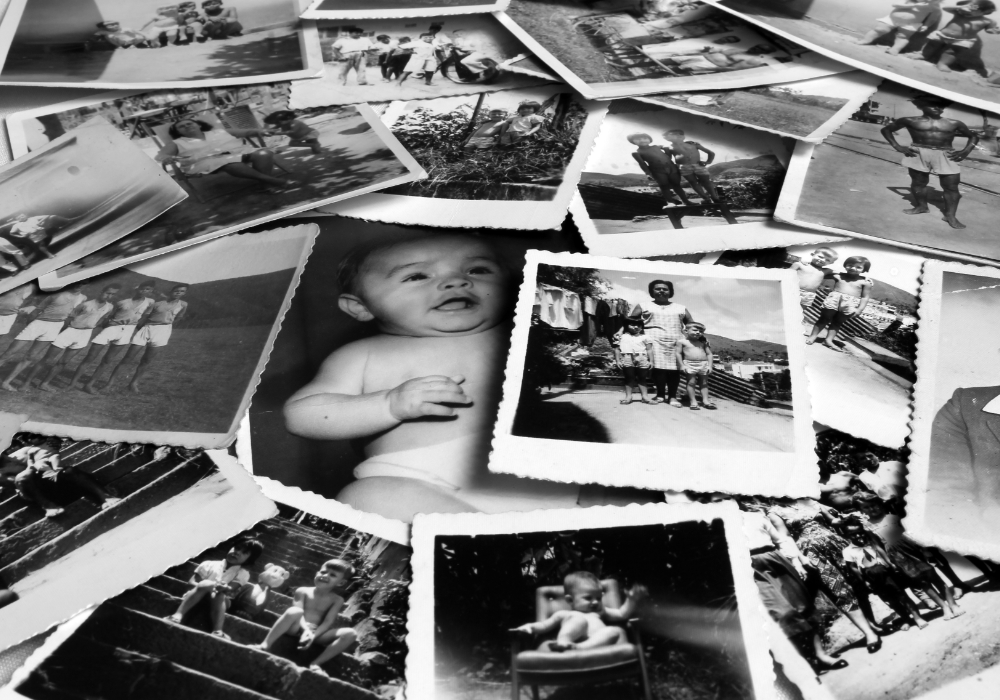Emotional déjà vu isn’t a glitch—it’s a signal you’re ignoring something.

Ever get that weird sensation that life feels stuck on replay? The days keep moving forward, but somehow, you keep running into the same feelings, the same doubts, the same stuck points. You might think you’re just having an off week, but it runs deeper. Emotional loops aren’t random—they’re clues. They’re your mind’s way of flagging something unresolved, some lesson you keep sidestepping.
It’s like being trapped in your own private Groundhog Day, except instead of the same events, it’s the same emotional echoes. Loneliness that sneaks in no matter how crowded your life is. Guilt that sticks around even when you “know better.” When feelings repeat, it’s not because you’re failing—it’s because something inside you is still unfinished. Understanding these patterns doesn’t just help you break the loop—it can help you finally move forward for real.
1. Loneliness keeps showing up even when you’re surrounded by people.

Being alone and feeling lonely aren’t the same. You can be in a packed room or deeply loved and still feel that quiet ache in your chest. This is the loneliness that keeps looping—the one that isn’t about physical company but about emotional connection with yourself.
You can fill your schedule, text all your friends, and swipe through every dating app, but that echo stays. According to Niranjana Rajalakshmi for the University of Arizona, feeling lonely isn’t strongly linked to the amount of time spent alone—emotional loneliness can persist even when surrounded by people and having plenty of company.
When this feeling returns, it might mean you’re not truly seen, even by yourself. Maybe you’ve built walls or worn masks so long that no one, including you, really knows you. Loneliness is your mind’s subtle alarm saying, “Hey, you’re disconnected from your real self.” Until you start showing up authentically—messy, vulnerable, fully human—the loop won’t stop. No amount of external noise will fix an internal silence that’s begging for your attention.
2. Guilt returns over and over because the wound beneath it stays unhealed.

Guilt is sticky. Even after you apologize or “make it right,” it finds a way back. You might think you’ve moved on, but one quiet moment and there it is again, tapping on your shoulder. That’s because guilt rarely comes alone—it’s often covering up deeper grief, regret, or shame that never got processed. As highlighted by Brené Brown, shame—a deeper sense of being flawed—frequently hides beneath guilt, leading people to stay trapped in self-blame rather than addressing the real emotional wound.
Instead of confronting these rawer feelings, we keep ourselves on a loop of guilt as a distraction. It feels easier to blame yourself than to sit with sorrow or admit powerlessness. The loop becomes familiar, almost comforting, because at least it’s a feeling you know. But healing requires going underneath it, facing what guilt is protecting you from. Only then can you finally break free of that endless internal courtroom and start forgiving yourself for real.
3. Anger keeps circling back because boundaries aren’t being honored.

Anger gets a bad reputation, but it’s actually one of your clearest messengers. It shows up when something feels unjust, when a line has been crossed. If you keep finding yourself boiling over at small things, that’s a sign there’s a bigger pattern underneath. It means your boundaries might be blurry or constantly violated—by others or by yourself. Per writers for the Financial Times, anger is “a neutral emotion that is there to protect us, inform us and energise us,” signaling boundary violations or unmet needs rather than aggression.
When you don’t enforce what you need, anger keeps returning like an unpaid bill. You can vent, meditate, or journal, but if you don’t actually act—say no, speak up, walk away—the loop stays. Anger isn’t there to punish you; it’s there to protect you. Ignoring it or numbing it just extends the cycle. Listening to it, really listening, is how you finally break out of that endless emotional rerun.
4. Nostalgia repeats because something in the present feels too heavy to face.

Those daydreams of “better times”? That playlist you keep revisiting? The old photos you scroll through on bad days? Nostalgia is comforting, but when it loops constantly, it’s a sign you’re struggling to live fully in the present. You might think you just love memories, but often you’re using them to hide from something now.
The past feels safe because it’s already written. You know how it ends. The present? It’s messy, unpredictable, and full of choices that feel too overwhelming. So your mind escapes backward, looping through golden moments that don’t require bravery. Nostalgia becomes a soft blanket that eventually smothers growth. Facing the now—grief, uncertainty, awkward first steps—is uncomfortable but necessary. Otherwise, you’ll keep living in reruns, missing the one episode that actually matters: today.
5. Self-doubt keeps returning because old stories never got questioned.

You think you’ve outgrown it. Then a new opportunity comes, and suddenly, that old voice creeps in: “Who do you think you are?” Self-doubt isn’t just about lacking confidence—it’s about carrying stories that were planted early and left unchallenged. Maybe they came from family, teachers, or culture telling you to play small.
When self-doubt loops, it means those stories are still running the show behind the scenes. You can add more affirmations or collect achievements, but until you actually examine and rewrite those narratives, they’ll keep hijacking every new chapter.
The loop isn’t there to torture you; it’s inviting you to ask, “Is this even true?” Breaking it means confronting the origin stories with compassion and choosing to believe something bigger. Because the person you’re becoming deserves a narrative that matches their actual potential—not a dusty old script.
6. Resentment keeps resurfacing because unspoken truths stay buried.

Resentment doesn’t show up out of nowhere. It builds in quiet, ignored corners: the favor you didn’t want to do, the hurt you brushed off, the “it’s fine” that was never actually fine. When you don’t express what’s really going on, resentment collects like emotional dust, and eventually, it loops back stronger each time.
You might think you’re avoiding conflict, but you’re actually feeding a future explosion. The loop keeps repeating because the truth is still stuck in your throat. Speaking up feels scary—maybe you don’t want to rock the boat or lose someone’s approval. But as long as the words stay unspoken, resentment will keep haunting you. Breaking the cycle doesn’t require rage; it requires honesty. And honesty isn’t about tearing things apart—it’s about finally clearing space for real connection.
7. The fear of missing out keeps looping because self-trust hasn’t been built yet.

FOMO isn’t just about parties you skipped or opportunities you passed on—it’s about believing your own choices weren’t enough. Every time you feel that ache scrolling through someone else’s highlight reel, it’s not really about them. It’s a reflection of the shaky relationship you have with your own decisions and desires.
When self-trust is weak, every other path looks shinier. You question whether you chose right, whether you’re living right, whether you’re enough. The loop keeps you chasing distractions instead of sinking into your own life. Breaking it isn’t about saying yes to more invitations—it’s about learning to stand by your “no.” Trusting your own path won’t stop other options from existing, but it will stop them from overshadowing your joy. Once you believe you’re exactly where you’re meant to be, the loop loses its power.
8. Anxiety repeats because your nervous system never learned to feel safe.

Anxiety loops aren’t just mental—they’re physical. When your nervous system lives in fight-or-flight mode long enough, it starts scanning for threats even when none exist. You find yourself rehearsing disasters, spiraling over “what ifs,” and replaying tiny moments like they’re catastrophic. The loop keeps you stuck in hypervigilance, always bracing for an impact that might never come.
This isn’t just overthinking—it’s a body trying to protect you in overdrive. Healing the loop isn’t about forcing calm or pushing away thoughts; it’s about teaching your nervous system what safety actually feels like. Breath work, grounding practices, therapy—tools that anchor you back into the moment. Once your body learns it doesn’t have to be on guard all the time, the mind follows. The loop weakens, and life stops feeling like a minefield and starts feeling like something you can actually inhabit.
9. Regret keeps echoing because forgiveness—especially of yourself—is unfinished.

Regret is a heavy loop. It pops up in quiet moments and late-night spirals, replaying choices you wish you made differently. But regret doesn’t stay alive because of the event itself—it survives because forgiveness is still missing. Most of the time, the hardest person to forgive isn’t someone else; it’s you.
We replay regrets because we believe that punishing ourselves somehow fixes the past. But it doesn’t. It just keeps us stuck, forcing us to relive moments we can’t change. The loop loosens when you finally accept that you did the best you could with what you knew then. Forgiveness doesn’t excuse mistakes; it releases the grip they have on your present. When you truly forgive yourself, regret transforms from a loop into a lesson—and lessons, unlike loops, help you grow forward instead of circling endlessly.
10. Yearning keeps returning because you still believe fulfillment lives outside you.

That endless ache for something “more” can feel like a compass pointing to a better life. But when yearning becomes a loop, it’s usually a sign you’re outsourcing your wholeness—chasing the next relationship, the next job, the next city, convinced that’s where real happiness hides.
The loop keeps going because external fixes can’t fill internal gaps. You arrive, and the longing is still there. You upgrade, and the emptiness remains. Fulfillment doesn’t start when circumstances change—it starts when you realize nothing outside of you can complete you.
The practice isn’t about rejecting desire altogether, but about anchoring into your own worth before seeking more. Once you do, desire becomes a healthy invitation, not a hungry ghost. Only then can yearning shift from an endless chase into a quiet, guiding force that enhances life instead of consuming it.
